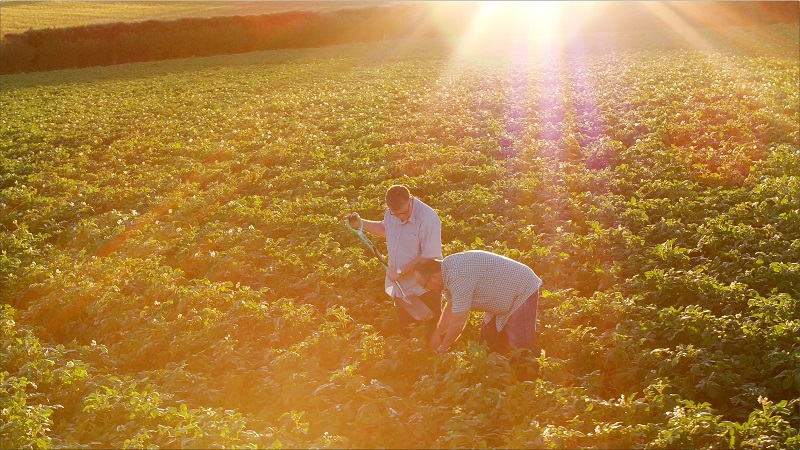It’s commonly known that spuds are a vegetable carbohydrate and due to faddish diets in recent years, they fell out of favour and were lumped into the ‘all carbs are bad’ category – some even thought that potatoes were fattening!
Thankfully, common sense and science have reigned supreme, and people are again singing the praises of the faithful tuber. Potatoes should be an integral part of our diet – they provide essential nutrients, fibre and energy, for our muscles, including heart, lungs and brain. Remember baked is best and keep the skins on, whatever your method. This helps retain the nutrients in the flesh and maximises the fibre.
The daily intake facts, per 100g:
- 77 calories
- 0 percent fat
- 0 percent cholesterol
- 0 percent sodium
- 32 percent Vitamin C
- 15 percent Vitamin B6
- 12 percent Potassium
- 5 percent Magnesium
- 5 percent Carbohydrate
- 8 percent Fibre
- 4 percent Iron
- 4 percent Protein
- 1 percent Calcium
- + Thiamin (B1)
- + Folate
Rejoice in the benefits:
- Normalised blood pressure.
- Improved metabolism.
- Strong immune system.
- Healthy brain.
- Healthy cardiovascular system.
- Healthy digestion.
- Effective muscle function.
- A myriad of divine recipes from around the world.
Some important points on fibre:
Potatoes are a high fibre food because they contain both types of fibre – soluble and insoluble. These fibre types keep you feeling fuller for longer and contribute to healthy, regular bowel function. Keep the potato skins intact if you’re looking to get the most fibre out of your potato dishes. When it comes to fibre, keeping hydrated is also key – this allows the nutrient to do its work. Two medium-sized spuds with skin on will offer you a third of your recommended daily fibre intake.
Big ups for kids too:
Children gain more iron, vitamin C, B1, B6, potassium and magnesium from potatoes than from bananas, beetroot, nuts, avocado and broccoli. Littlies moving on to solid foods find them gentle in flavour and to digest, as well as being fat-free and salt-free.
Happy healthy tums:
Gut health is an increasingly important topic in the nutrition world, to which potatoes contribute positively. A healthy gut is determined by the number of ‘good’ bacteria present. These ‘good’ bacteria are found in diet rich and fibrous foods like potatoes (and other fruit and vegetables) and play an important role in supporting immunity. If you cool the cooked spud and eat it cool, or even recook a cooled potato, the starch is converted to resistant starch which is a fantastic fibre for the gut.
By Gemma Carroll, Communications & Engagement, Potatoes NZ.






